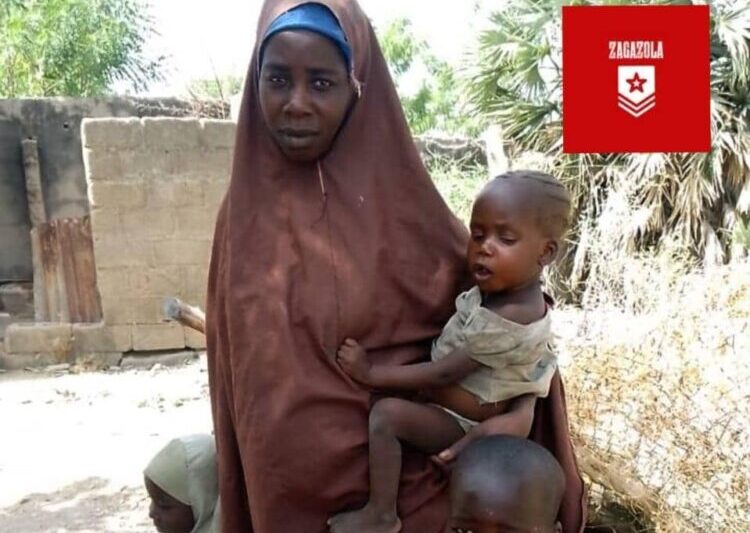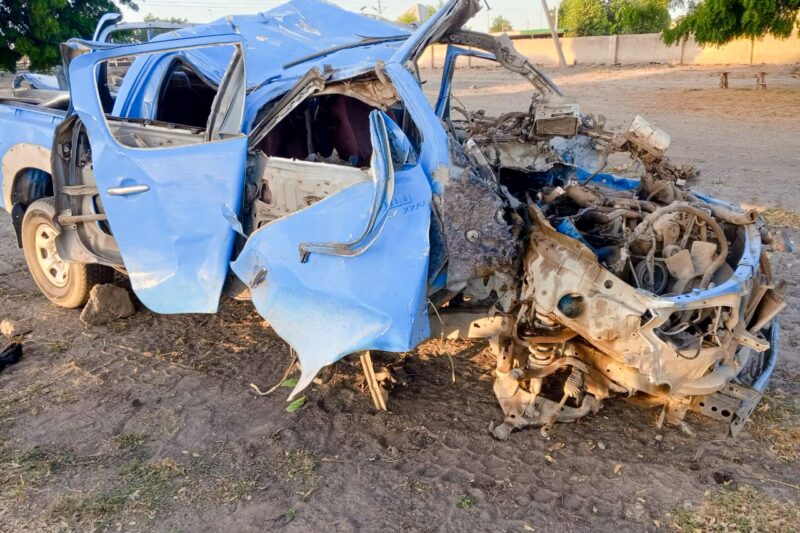While countries around the globe marked World Refugee Day on Monday, June 20, nothing much has changed for those living in Gubio internally displaced persons’ camp – in fact, if anything, their living conditions have worsened and most want to go back to their ancestral homes.
There are 3.2 million displaced persons, including 84,000 refugees, living in Nigeria, according to the United Nations High Commission for Refugees (UNHCR).
In 2022, forced displacement was expected to continue driving up humanitarian needs while access would remain a challenge, particularly in the Sahel and the Lake Chad Basin, where aid workers had not been spared from indiscriminate attacks by armed groups.
The UNHCR said that compounded by the increasing frequency of extreme weather events related to climate change and by the lasting effect of COVID-19 on countries with fragile economies and weak social services, extreme poverty and food insecurity was likely to increase – primarily affecting the most vulnerable, including displaced populations.
Chansa Kapaya, the UNHCR representative in Nigeria, said in a statement released on June 20, that displacement had been growing rapidly in the country since 2018, with 500,700 people newly displaced last year. Most of the refugees were from Cameroon, predominantly from the southwest and northwest regions of the country, where escalating conflict between the government and non-state armed groups was rife.
The northeast region of Nigeria – particularly Borno State – was the epicentre of the violence when the insurgency began in 2009. Millions had fled their homes to avoid persistent and deadly attacks.
Their displacement had left women, children and the elderly most vulnerable, especially in IDP camps and host communities, which were severely congested and often lacked sufficient sanitation facilities. It was a struggle to find jobs; food and water was scarce; and medical services were often nonexistent.
Ummie Muhammad, an IDP living in Gubio camp about 16km from Maiduguri in Borno State, told RNI reporter Zainab Alhaji Ali that she was originally from Gamboru Ngala and had been living in the camp since she was 13.
She said the Jamā’at Ahl as-Sunnah lid-Da’way Wa’l-Jihād (JAS), better known as Boko Haram, had chased her family from their village. They lived in camps in Chad, Adamawa State in Nigeria and had finally ended up in Gubio camp.
“Living in the camp is very hard and we face many challenges. We live in one room with my parents, brothers and sisters. There are eight or nine of us in the room. Sometimes I sleep outside. But I cannot do that in the rainy season – we are forced to squeeze into the one room.
“I remember when we lived in our village in Gamboru Ngala, I had my own room. Our parents gave us anything we needed. But now the only thing they can give us is food. I have to go fetch firewood and water. But it is far from the camp and I get scared. I’m afraid of being attacked by insurgents and I am also scared of boys and men approaching me offering money for sexual favours.”
Muhammad said that her parents could not even contribute to her wedding ceremony. “They made me get married because they were poor. If I could go back to my village, the people there would help me buy furniture for the house, such as chairs, kitchen equipment and the rest. And I could also contribute by doing small jobs.”
Hajja Ali said she her family had lived in the camp since she was 12. “My brothers and sister and our parents sleep together in one room. There are 10 of us. Some are sleeping, some are sitting because there is not enough space for all of us to lie down in the room. In our own local government area our parents bought us what we needed. But here I have to look after myself. My parents are poor and cannot afford to give us anything except food. It has got worse since the government banned non-governmental organisations from giving us food.”
She said she sewed caps and other garments and used the money to help out the family and to buy clothes, shoes and hijabs.
“The governor of Borno State [Babagana Umara Zulum] promised us that he would return us to our fatherland. But, so far, he has not given us permission to return. All I want is to go back to our village so we can start farming again.”
ZAINAB ALHAJI ALI








